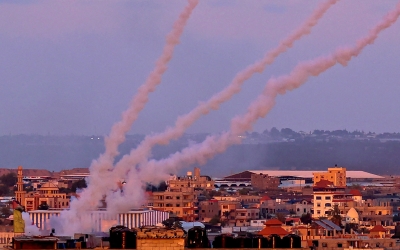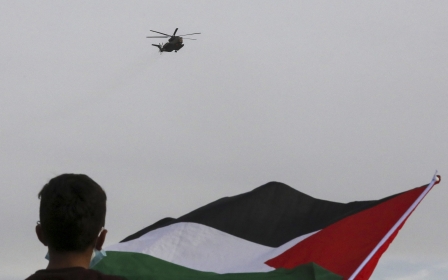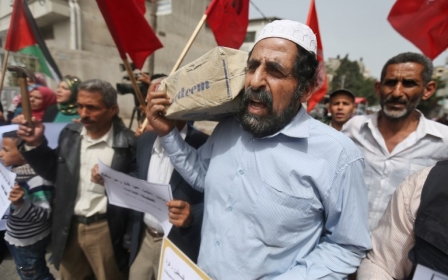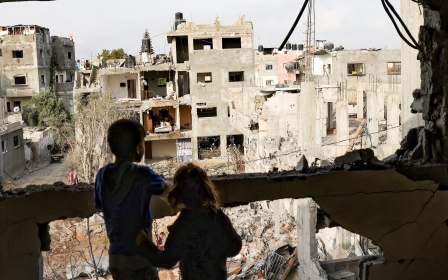Gaza under siege: How a simple family visit becomes a painful ordeal
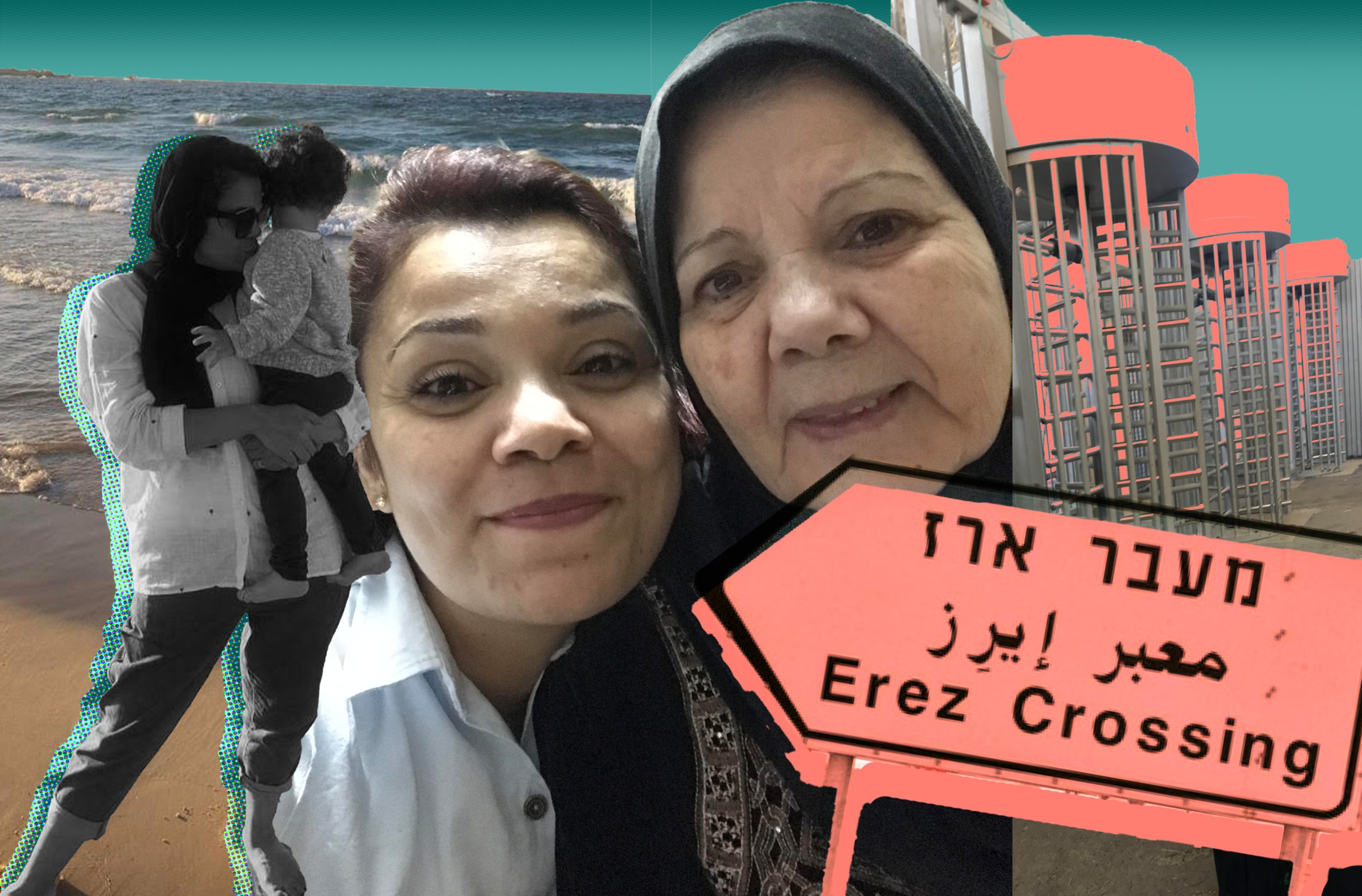
I left Gaza in 2016, promising never to return. At the time, I was single, seeking a better education, work opportunities and basic rights, including access to clean water, regular electricity, freedom of movement, safety and security. Over the past five years, I have moved between Germany, the UK, Jordan and Turkey.
But things changed when my mother tested positive for Covid-19 earlier this year and suffered a debilitating stroke. Only then did I begin to contemplate returning to Gaza, the world’s largest open-air prison.
After she finished hugging me, my mum told me that she was overjoyed she got to see me before she dies
I spent several months considering the decision, which was difficult not only because of my work responsibilities in Istanbul, but also because I was now the mother of a 20-month-old baby. I pondered my options nonstop, day and night. Sometimes I felt selfish; sometimes I felt weak; but mainly, I felt the oppression of the Israeli-Egyptian siege that has made life miserable for two million Palestinians in Gaza.
This past May, a fresh round of violence that started in Jerusalem quickly reached Gaza, killing more than 250 people and injuring hundreds more. After the war ended, I felt it would be a good time to go, because there would not likely be another eruption of conflict soon. I considered whether I should attempt crossing into Gaza through Rafah, which is a complicated process, or Erez, which tends to be faster and easier, but still requires Israeli permission. I ultimately opted for Erez, submitting an application through the Palestinian Ministry of Civil Affairs for two permits: one for myself, and one for my baby, Jumana.
We were approved within a week, and I was delighted. The permits were for 30 October, so we had to fly to Amman the previous night to ensure we didn’t miss our window for crossing. The next morning, we left our hotel at 9am, and travelled through three checkpoints at Allenby Bridge: Jordanian, Israeli and Palestinian. At the Israeli checkpoint, we were delayed by more than four hours amid a group of around 70 travellers headed for Gaza.
New MEE newsletter: Jerusalem Dispatch
Sign up to get the latest insights and analysis on Israel-Palestine, alongside Turkey Unpacked and other MEE newsletters
New piles of rubble
Outside the checkpoint, after our passports and identity cards had been taken from us by Israeli soldiers for fear we could “escape” to the occupied West Bank during the trip, a shuttle bus waited to take us to the Erez crossing. At 2:30pm, the bus started moving towards Gaza. Jumana slept the whole way, until we finally made it to the Gaza crossing at 5pm - two hours before it was supposed to close.
We spent an hour and a half at Erez, where our bags were checked by Israeli authorities, and then moved on to a checkpoint administered by the Palestinian Authority (PA), before reaching the final checkpoint. After having my bags checked there at 8pm, I was welcomed by an officer whose smile told me that we had finally made it.
Upon our arrival at my family’s home in Gaza City, everyone was surprised and happy to see me - for the first time in five years - and my baby, whom they had never met. After she finished hugging me, my mum told me that she was overjoyed she got to see me before she dies.
The next day, I had to do what every traveller does after arriving in Gaza: apply at both the Rafah and Erez crossings to have my name added to the travellers’ list within the next couple of weeks. There is never any guarantee that your name will ultimately be added.
Looking around Gaza, I felt that it was still the same, as though I’d left only yesterday. I realised how much I missed it. At the same time, I had to start remembering the number of hours of electricity we got in our home daily, so that I could manage laundry and other household tasks.
The only major changes I came across in Gaza were the large new piles of rubble in the city centre, where Israeli warplanes had struck during the recent military offensive. It was more difficult to navigate the area near my home, as many main roads were closed for ongoing rubble-clearing work that was still underway months after the war had ended.
Humiliations replayed
A week later, I was surprised to find my name listed among travellers at the Rafah crossing for the following week. It was very short notice; people usually wait months for their turn to travel, but I was told that most of those who lived outside Gaza had left already, as school had started.
The list was published via the Hamas-run interior ministry website, and many friends sent me screenshots of my name and my baby’s. In Gaza, everyone has the right to know your travel plans. I wanted to stay longer, but felt it was a risk to skip the scheduled date and sign up all over again - so I ultimately opted to leave on the scheduled date, 14 November
The next morning, as I sat in the hotel cafe with my baby and sipped coffee, the tears began to flow
A day before I was set to travel, I got a call from the PA-run Ministry of Civil Affairs, telling me that I had also been issued an Israeli permit to leave via Allenby Bridge (at first they told me my baby had not received a permit, but that was later cleared up). I opted to return that way, figuring the trip via Amman would be shorter and easier; it wasn’t. And travelling through Erez meant I could not have any wheeled bags, electronics or toiletries, in accordance with Israeli restrictions. I have no idea why these items are not allowed for Palestinians when they are for people of other nationalities who cross through Erez.
We had to pass through the same series of checkpoints en route to Amman, and again, we boarded the shuttle bus after our ID papers had been taken from us, lest any of the several dozen travellers tried to “escape” to the occupied West Bank.
We were not allowed off the bus, even to use the toilet; it made me think of how animals are transported across borders, and such treatment should not even be acceptable for animals. I eventually arrived at my hotel room in Amman at 9:30pm, utterly exhausted.
The next morning, as I sat in the hotel cafe with my baby and sipped coffee, the tears began to flow. In my head, I replayed the humiliations I had to endure simply because I was born in Gaza. If there is so much concern that Palestinians from Gaza want to “escape” in search of a better life, should state authorities not grant them a decent life, rather than leaving them to suffer in Gaza?
The views expressed in this article belong to the author and do not necessarily reflect the editorial policy of Middle East Eye.
Middle East Eye delivers independent and unrivalled coverage and analysis of the Middle East, North Africa and beyond. To learn more about republishing this content and the associated fees, please fill out this form. More about MEE can be found here.



